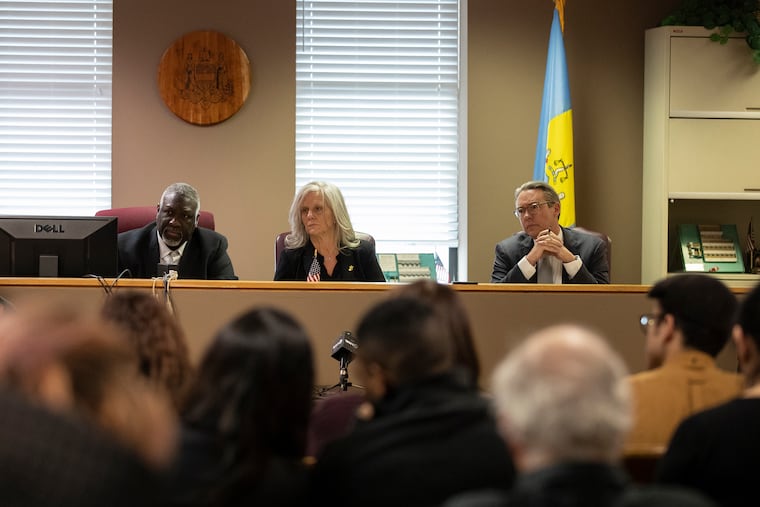Only in Philly: Elected officials run elections — but why? | Editorial
Philadelphia is alone among big cities where elected officials actually run elections. That should stop.

The May 21 primary promises to be groundbreaking for a number of reasons. The sheer number of candidates for City Council – more than 25 -- is notable. So is the number of candidates running for less well-known offices. The City Commissioners office, for example, has 13 candidates in all running for two Democratic slots. To help voters better understand the functions of some of these offices as well as what is at stake, this special “Primary School” editorial series introduces you to the key issues, offices, and players.
This week: City Commissioners
On the ballot: Three commissioners will be elected, two of them Democrats out of a field of 13: Lisa Deeley, Carla Cain, Jennifer Devor, Dennis Lee, Luigi Borda, Warren Bloom, Moira Bohannon, Annette Thompson, Kahlil Williams, Lewis Harris, Robin Trent, Marwan Kreidie, and Omar Sabir. Incumbent Al Schmidt is running unopposed as a Republican.
Overview: The city commissioners are responsible for registering voters and conducting elections in Philadelphia. That includes everything from making sure registers of eligible voters are up to date to processing ballots to maintaining 3,500 electronic voting machines.
Why are they elected? Philadelphia is alone among big cities where elected officials actually run elections. Good-government groups and others (including this board) have been asking for years why certain row offices like sheriff are elected rather than appointed. That goes double for city commissioners, especially given the importance of nonpartisanship in the process of ensuring that people can and do vote.
The commissioners’ office has been criticized often for problems in its performance and controls. It recently generated criticism for its process and choice of voting machines. But the largest argument against the commissioners’ being an elected office has consistently been provided by one of the commissioners himself. For years, Commissioner Anthony Clark, whose term is up in 2020 and is not running for reelection, has gained a reputation for never showing up for work — and only rarely voting. His salary is over $130,000 a year. A nine-year-old report from the Pennsylvania Intergovernmental Cooperation Authority found that election administration spending in Philadelphia was twice the median spending of other counties in the state. Eliminating it as an elected office would save money.
How do other places do it? Other major cities have a single appointed or elected official who oversees a central office, or an appointed board of elections. Eliminating the Philadelphia commissioners’ office would require action from City Council to enable a charter change.
More election information:
A crowded field of City Council candidates is a good thing for democracy, but a challenge for voters to learn as much as possible about them. That’s why The Inquirer is partnering with a number of organizations, including WHYY, Committee of Seventy, Philadelphia Foundation, League of Women Voters, Urban Affairs Coalition, Chamber of Commerce, and others to host a Council Candidate Convention. On Monday, April 22, at WHYY, 150 N. Sixth St., from 5:30-8 p.m., the public can meet and talk to City Council candidates. You must register in advance: bit.ly/LetsVotePHL.